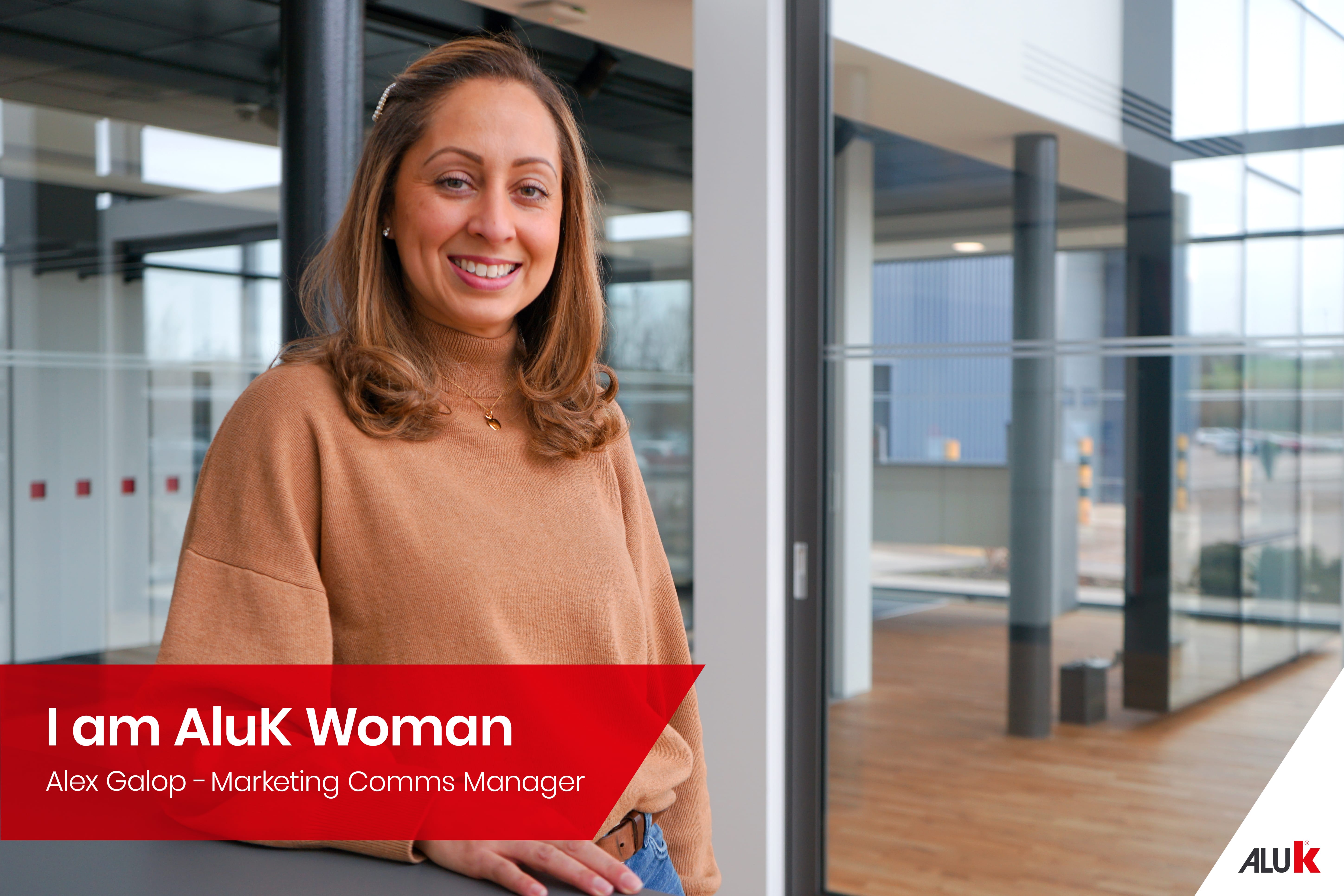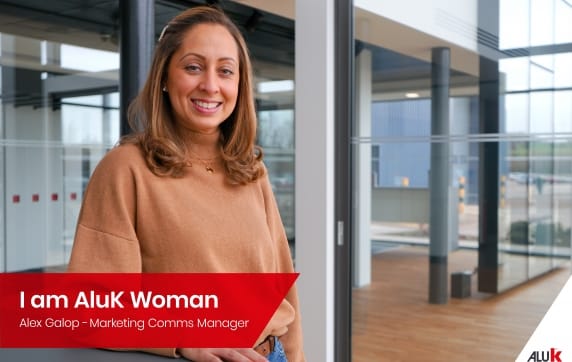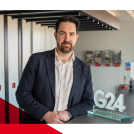As part of the 8th March International Women's Day, we want to highlight the women working at all levels at AluK. Meet Alex, she is our Marketing Comms Manager. We've prepared an interview where she shares her experience in this industry as a woman.

Can you share a little bit about yourself and your work at AluK?
I joined AluK four months ago as the new Marketing Communications Manager, moving from agency-side back in-house. My background is in the construction sector marketing and PR, so it feels great to be working for a successful Aluminium systems house. At AluK, I manage a small team that takes care of both marketing and lead generation. We work closely with all parts of the business to launch products into the market, to run product and brand campaigns, and to deliver the company’s ambitious marketing plan to support growth. We manage all communications activity with our customers and prospects in the UK and enjoy sharing best practice with our counterparts across the AluK Group.
What influenced you to pursue a career in the aluminium/building industry?
I love the pace and passion of the construction sector, especially the desire to improve lives through better building design and sustainability. It’s rewarding working in product marketing within this sector. Interest levels are high and you can afford to try different things in marketing. Aluminium is a very sustainable product, and it feels good to know that its impact on the planet is low.
What do you like most about your job?
I love trying to understand our customer types and build campaigns that really speak their language, from useful digital assets like microsites and infographics, to informative copy for articles and literature. I’ve had lots of exciting projects and campaigns that I’ve felt proud of, but overall, I think becoming a communications manager whilst still retaining a hands-on approach has been very important to me. It’s easy to get to management level and take a step back when you take a step up, which is when you can see your skillset decrease. There’s little I would ask my team to do that I can’t do myself (perhaps with a bit of googling!) and I enjoy being involved in the tactical as well as planning the strategy.
What is your biggest accomplishment in your career so far?
Becoming a manager without changing who I am to conform to stereotypes. When I first took the step to manage people rather than just the marketing function, I suffered greatly with imposter syndrome – feeling that I had the knowledge but not the authority to lead a team. But as with everything, reading a few management books and just finding my own way has given me the confidence to be myself. That means treating people well, ensuring my team are happy and valued, whilst ensuring the work we produce is as good as it can be.
What else would you like to achieve in your career?
I’m keen to increase my marketing knowledge with more professional training. Things change so fast and it’s important to keep pace with changes and new ideas to keep our ideas fresh.
How do you balance career & family?
It’s a tricky balance! I have a husband and two young girls who mean the world to me, so when I’m not at work or commuting, I spend all my time being a mum. Working fulltime whilst raising children is a challenge but it’s good for them to see me working hard and hopefully being a good female role model!
Aluminium is a field mainly dominated by men. Have you faced any obstacles in your career which you believe were due to be a woman? If so, how did you overcome this?
The construction sector is very male dominated, but there are more and more women coming into both the trade and architectural sides of our business. The design industry attracts quite a diverse set of people, both male, female, many ethnicities and a growing representation from the LGBT community, so it feels much less alpha-male than some might imagine. I’ve worked in construction for eight years now so I guess I see the difference is sexes less now and just see different types of people. Confidence and ability to hold my own in friendly banter has come in handy over the years, but working in Marketing, I’ve never felt that being a woman has held me back in my career.
In your opinions, what challenges women face in the aluminium/building industry?
It very much depends on the role you play. Marketing tends to be female-heavy, even in the construction sector. I think an interest in the technical and an understanding of building design and regulation helps – but as with any industry, just being good at your job, and confident and personable in your attitude can help you fit in to male-dominated teams. If anything, I think women may have to try harder than their male counterparts to be taken seriously in this industry. It’s certainly easier to be taken seriously when you get a little older!
What advice would you give to a woman looking to start her career in the aluminium/building industry?
Don’t be afraid of the technical aspects. Embrace them and release your inner geek, because the more you can understand – if only to communicate it more simply to non-technical customers – the easier your job will be and the more respect you’ll earn from your older, mostly male colleagues. And be yourself! There is no typical person in the construction sector. It’s more diverse than ever before, and there is plenty of room for passionate people of any gender, age, race, orientation. The common theme is a genuine interest in the build environment and making lives better, so if that interests you, you’ll find construction a very exciting industry in which to work.
What do you think companies like AluK can do to encourage more women to choose careers in the aluminium/building industry?
Companies like AluK can encourage more women to work in the construction sector by becoming more flexible. The industry can be very old-fashioned, with staff working longer hours than the typical 9-5 and offering less opportunity for flexible or home-working, which is at odds with the way people work in many other industries. Women in their 30s and 40s are likely to want to start a family or have a family, so offering more flexibility and having maternity policies that support working parents is the best way to attract and retain great women in the long-term. Similarly, many highly skilled mothers would jump at the chance to work part-time or to jobshare – which can be done very effectively – so offering these types of part-time roles can tap into a valuable, and often underexploited resource. As the saying goes, if you want a job done well, give it to a busy person, and you don’t get much busier than a working mum!



